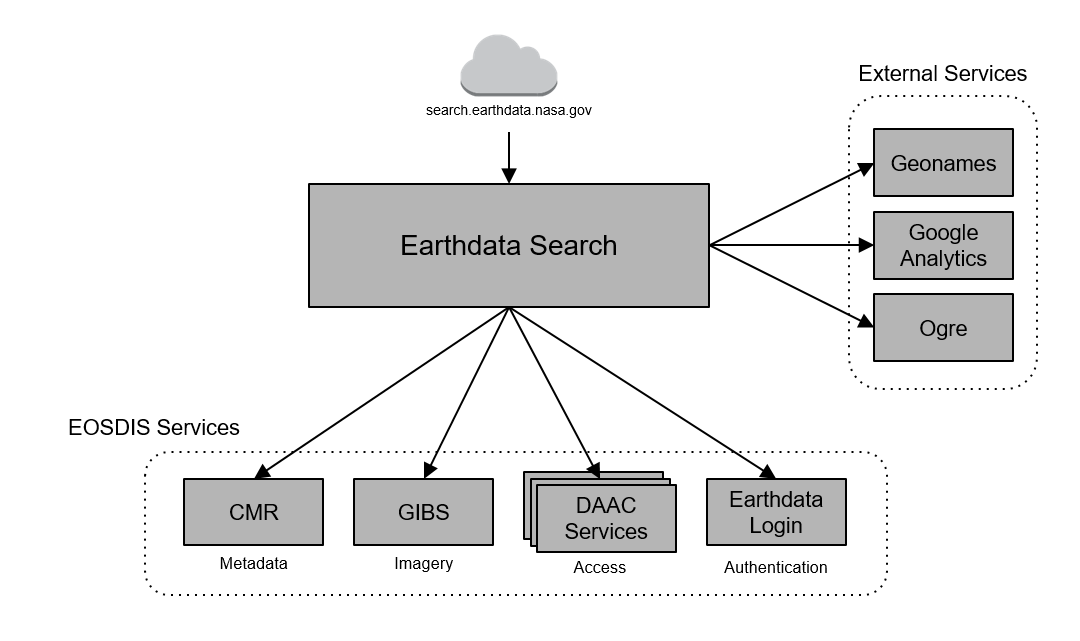Earthdata Search Overview
Earthdata Search (https://search.earthdata.nasa.gov) is a modern web application allowing users to search, discover, visualize, refine, and access NASA Earth Observation data using ESDIS’ wide array of service offerings. It's goal is to ease the technical burden on data users by providing a high-quality application that makes it simple to interact with NASA Earth observation data, freeing them to spend more effort on innovative endeavors. It also provides a way for EOSDIS to showcase its service offerings, including CMR and GIBS
By nature of interfacing with the CMR, Earthdata Search has access to all of the EOSDIS earth science data along with the international holdings previously only available through the Global Change Management Directory system.
System Architecture
Earthdata Search is a serverless application built using React. It relies on AWS Lambda, API Gateway, and CloudFront along with a few other services to enable search, discovery, access and customization of EOSDIS data.
Ranking of -ilities
The ranking of -ilities provides the developers of Earthdata Search a means by which to decide between different design options. As shown below, we value quality of the tool above all else, even though we ideally strive to ensure all -ilities are met at all times!
Quality > Usability > Agility > Availability
- Quality – We value simple, lightweight client design to ensure that we are able to maintain a high quality user experience via low bug rates. We work with service and metadata owners to improve the stack we are built on.
- Usability – Design is a fist-class citizen in our process and we constantly solicit feedback and metrics to ensure we are meeting user needs.
- Agility – We incorporate new capabilities and respond to user and data provider needs.
- Availability – We maintain a zero-downtime application.
Key Trade-Offs
- Graceful degradation over Universal support – We prefer to assume collections will have the best possible feature support and degrade gracefully if they do not, rather than coding to the lowest common denominator. This acts as a carrot for better service support and high-quality metadata.
- Simplicity over Feature richness – New features, especially in rich web applications, come at a cost of higher cognitive load on users decreased performance, and higher maintenance costs. We treat new features with appropriate weight and design solutions to minimize it
- Dumb client over Smart - We prefer the CMR, having more complete information, provide us with required metadata and a clean search API, rather than attempting to clean up gaps by adding translations, thereby decreasing the weight of the client and improving the API for other clients.
- Data over Opinions - We value collecting metrics and using A/B testing to validate the feedback we are getting to ensure that it is in the best interest of our large user audience and not just representative of the opinion of one user.
System Robustness and Availability
System Monitoring
Earthdata Search uses built AWS monitoring services to ensure the system is highly available. If an issue resulting in the loss of service is encountered, our team is alerted and the issue is prioritized for resolution immediately.
Horizontal Scaling
Earthdata Search is architected to scale horizontally to ensure a highly performant application regardless of the load placed on the app.
Documents
This space contains :
